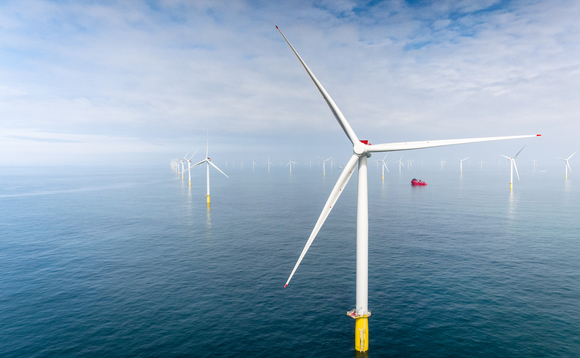
That is the headline conclusion of a paper published this morning by the Tony Blair Institute for Global Change, which attempts to tease out lessons from the offshore wind industry for policymakers tasked with delivering net zero.
The think tank argues that long-term, cross-party political commitment will be "essential" to delivering on the UK's legally-binding 2050 net zero target, noting the domestic offshore wind industry's meteoric rise has been buoyed by sustained support from Labour, Coalition and Conservative governments since the early 2000s.
Meanwhile, other technologies and measures regarded as critical to reaching net zero - such as home insulation and carbon capture and storage (CCS) - have struggled to get off the ground or advance on a downward cost curve because support programmes have been introduced and then abruptly withdrawn as governments prevaricated, it notes.
Phil McNally, the report author and senior net zero researcher at the Tony Blair Institute noted that offshore wind "could not have happened" without steady, cross-party political support.
"It is the only low-carbon technology that has received this sustained support to date, and that has delivered a world-leading sector while other technologies have stuttered," he said. "This is clear evidence that a centrist approach is the only means of delivering the policy certainty that will drive technology deployment consistent with a net zero pathway."
The think tank has also recommended policymakers ensure that reducing the cost of capital is a central objective of net zero technology policies, as well as the need to adapt support programmes to the maturity of technology. Markets should be designed around desired long-term outcomes, it notes, adding that a clear strategy is needed to secure domestic benefits.
The paper further argues that a healthy pipeline is key for competition and supply chain development, and notes that partnerships between industry and government can deliver sustained investment. An efficient transition also depends on "strategic systems thinking", it adds.
The UK's renewable power, clean heat, electric vehicle, hydrogen production, and carbon capture goals depend on policymakers applying the lessons of policy interventions of the recent past, the report concludes. "Reflection and learning are essential if we are to succeed," it states. "The UK has a unique opportunity to do this thanks to the impressive rollout of offshore wind in North Sea waters over the past 20 years. The sector has grown at an unprecedented rate, and the UK is second only to China in installed capacity. The result is a technology that is much further along the development timeline than other low-carbon technologies required for net zero."
In related news, a separate report published this week has attempted to measure the socioeconomic and environmental opportunities which could be unlocked by ramping up wind power capacity in five developing economies.
The report, published by the Global Wind Energy Council (GWEC), argues that nearly 20GW of additional wind power installations could be installed in Brazil, India, Mexico, South Africa and the Philippines, if the right green recovery measures were introduced between 2022 and 2026.
This offshore wind bonanza could generate 2.23 million full-time jobs over the 25-year lifetime of the wind projects in question, and provide enough electricity to power roughly 25 million homes each year from 2026 onward, according to the research.
The GWEC said the findings, which have been published ahead of sustainable finance meet of G20 finance ministers and central bank governors, highlighted the importance of a "clear vision and policy commitment" to mobilise private investment in wind energy.